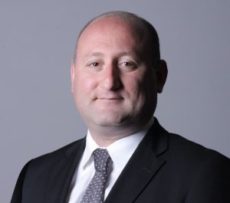By Edmond Y. Azadian
Turkey was the “sick man” of Europe throughout the 19th century. That sickness transformed over time and changed character with succeeding regime changes in Turkey: Ottoman, Ittihadist, Republican and today Islamist. But Turkish society remained sick and that is the main reason that the country is agonizing at the gates of Europe, its destiny hanging in the air.
It is one thing when the victims of the “sick man” identify the nature of that sickness but it is completely something else when the Turks themselves realize the source of the sickness as they try to seek remedies for the ailment.
It is this kind of realization — actually a revelation — that is brought to light by a prominent Turkish author and activist Erol Özkoray in a book in French titled Turquie: Le Putsh Permanent, published recently by the Chobanian Institute, soon to be translated into English by the Armenian Rights Council of America.
The Chobanian Institute was founded in Paris, by Jean Varoujan Sirapian, the former chairman of the ADL Chapter in Paris, on the 50th anniversary of Arshag Chobanian’s death and on the eve of European Union/Turkey negotiations. Ever since, the institute has published several scholarly volumes; it has developed contacts with senators and parliament members and above all, it has supplied scholarly documents to the French Parliamentarians working towards the passage of the Armenian Genocide resolution in that body.
Ashag Chobanian was a one-man committee for the Armenian cause in France. He single-handedly exposed to the European leaders the plight of the Armenian people in the Ottoman Empire before the Genocide and its rights afterwards. He enlisted prominent French thinkers in favor of the Armenian cause, such as Anatole France, Jean Jaures and others.








